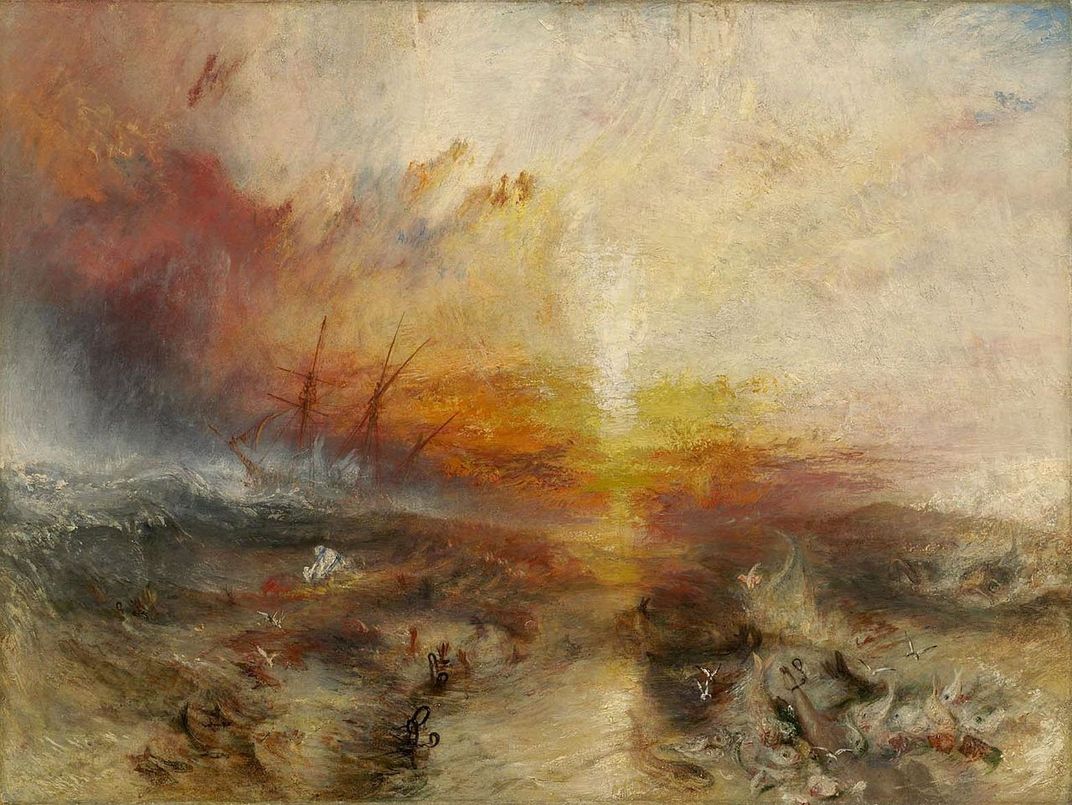Mark Twain Was not a fan of the Mona Lisa
“The complexion was bad; in fact it was not even human,” he wrote of Da Vinci’s mysterious smiling lady
/https://tf-cmsv2-smithsonianmag-media.s3.amazonaws.com/filer/25/12/25121fdc-154b-4915-b4d7-a1d53921eb63/samuel_l_clemens_1909.jpg)
The writer Samuel L. Clemens, better known as Mark Twain, isn’t just famous for his classic works of literature, but also for his cutting, humorous remarks. In his Innocents Abroad, he mocks typical travelogue writing by presenting his own experience of a trip through Europe and to the Holy Land. While on this journey, his sharp pen punctures the inflated expectations of Americans viewing classic works of European art. Nothing is sacred, not even the Mona Lisa.
For Open Culture, Josh Jones writes:
To Twain, the Mona Lisa seemed “merely a good representation of a serene & subdued face… The complexion was bad; in fact it was not even human; there are no people of that color.” The painting’s greenish hue prompted one of Twain’s companions, possibly an invention of the author’s, to exclaim in response, “that smoked haddock!” “After some discussion,” write the [librarians at UC Berkeley’s Bancroft Library], “the travelers concede that it requires a ‘trained eye’ to appreciate certain aspects of art.” Such training in art appreciation seemed to Twain as much genuine education as instruction in studied, insincere poses.
The now lauded Last Supper, also by Da Vinci, was in such poor condition at the time that Twain beheld it that he called it a "mournful wreck." He added, "I am satisfied that the Last Supper was a very miracle of art once. But it was three hundred years ago." The mural was restored most recently in 1999, but whether that work represented a repainting or a true restoration is still debated.
Twain didn’t like the nudity in Titian’s Venus of Urbino, writing in his 1880 A Tramp Abroad that the painting was "the foulest, the vilest, the obscenest picture the world possesses."
Twain also didn’t appreciate Joseph Mallord William Turner’s Slavers Throwing Overboard the Dead and Dying: Typhon Coming On, also called Slave Ship. The painting shows a stormy, dramatically colored seascape, a silhouette of a ship and the struggling, outreaching hands of people drowning. Twain’s judgement, penciled in his 1878 notebook, was "Slave Ship — Cat having a fit in a platter of tomatoes."

Yet, these words weren’t exactly Twain’s. Instead, he was referencing those of a Boston newspaper reporter, apparently, as Twain wrote in his 1880 A Tramp Abroad:
What a red rag is to a bull, Turner's "Slave Ship" was to me, before I studied art. Mr. Ruskin is educated in art up to a point where that picture throws him into as mad an ecstasy of pleasure as it used to throw me into one of rage, last year, when I was ignorant. His cultivation enables him — and me, now — to see water in that glaring yellow mud, and natural effects in those lurid explosions of mixed smoke and flame, and crimson sunset glories; it reconciles him — and me, now — to the floating of iron cable-chains and other unfloatable things; it reconciles us to fishes swimming around on top of the mud — I mean the water. The most of the picture is a manifest impossibility — that is to say, a lie; and only rigid cultivation can enable a man to find truth in a lie. But it enabled Mr. Ruskin to do it, and it has enabled me to do it, and I am thankful for it. A Boston newspaper reporter went and took a look at the Slave Ship floundering about in that fierce conflagration of reds and yellows, and said it reminded him of a tortoise-shell cat having a fit in a platter of tomatoes. In my then uneducated state, that went home to my non-cultivation, and I thought here is a man with an unobstructed eye. Mr. Ruskin would have said: This person is an ass. That is what I would say, now.
So even the famously snarky Twain was vulnerable to the awe certain artworks inspire. Just not that provoked by the ones typically praised.